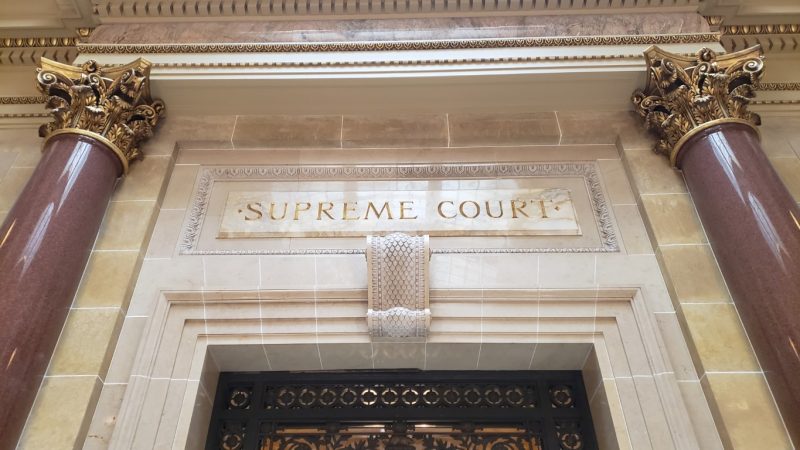The state Supreme Court Monday rejected the Green Party’s lawsuit seeking to place presidential candidate Howie Hawkins on Wisconsin’s November ballot, ruling it was too late in the process to add him.
The 4-3 ruling lifts a previous order that prevented local clerks from beginning to mail ballots with a deadline looming Thursday to begin sending them to those with a valid absentee request on file.
In the decision, the court noted the two weeks the party waited to file the lawsuit after the Elections Commission deadlocked on whether to add Hawkins to the ballot.
With “very short deadlines and that under the circumstances, including the fact that the 2020 fall general election has essentially begun, it is too late to grant petitioners any form of relief that would be feasible and that would not cause confusion and undue damage to both the Wisconsin electors who want to vote and the other candidates in all of the various races on the general election ballot.”
The Green Party originally turned in 3,737 signatures with 2,000 needed to qualify for the ballot. But they were challenged because the documents filed with the Elections Commission listed two different addresses for vice presidential candidate Angela Walker, who moved during the window that nomination papers were circulated.
The commission advised the party to file an amended declaration of candidacy to reflect the new address and take other steps to ensure the nomination papers met state requirements. But the party did neither. It also didn’t respond to a challenge to the nomination papers that cited the issues with Walker’s address.
Ultimately, the commission on Aug. 20 certified 1,789 signatures but noted it deadlocked on the validity of another 1,834 due to insufficient evidence on where Walker lived at the time those papers were circulated.
The party waited until Sept. 3 to file its request with the state Supreme Court to take up the case directly and issue an order placing Hawkins and Walker on the ballot.
Chief Justice Pat Roggensack, joined by conservative colleagues Rebecca Bradley and Annette Ziegler in dissent, slammed the ruling. Roggensack wrote the Green Party followed all of the requirements under state law, but the commission “suppressed the people’s right to choose to vote for Green Party candidates who have maintained positions that are important to them.” She called the commission’s actions “unlawful.”
Meanwhile, Bradley compared the majority’s decision to efforts to block ballot access for Black candidates in Alabama in the 1960s.
“America has witnessed such tactics in the past,” she wrote. “History repeats itself, as Wisconsin’s highest court rewards rather than
rebuffs such unlawful maneuvers.”
Hawkins told WisPolitics.com in a phone interview the party had a hard time finding a lawyer to take the case, eventually Googling until finding someone. He says the party filed the suit as soon as it could.
“The facts show we should’ve been on the ballot,” he said, adding the dissents read like the party “dictated them.”
Attorney Jeffrey Mandell, who represented the retired lawyer who filed the original challenge to Hawkins’ nomination papers, praised the ruling for allowing “Wisconsin’s election to proceed in an orderly, lawful fashion.”
The court ruling doesn’t bode well for an expected appeal by entertainer Kanye West after a Brown County judge on Friday rejected his lawsuit seeking to force his way onto the November ballot after the Elections Commission ruled his nomination papers were filed too late.
It’s also the latest example of Justice Brian Hagedorn, who was elected to the court in 2019, breaking with his fellow conservatives in a high-profile case. Earlier this year, he dissented in a ruling that overturned Gov. Tony Evers’ extended stay-at-home order to deal with COVID-19. He also sided with liberals as the court deadlocked on a request to directly hear a lawsuit seeking to force the Elections Commission to remove from the rolls voters who may have moved and failed to respond to a mailer checking on their current address.
Read the decision.




